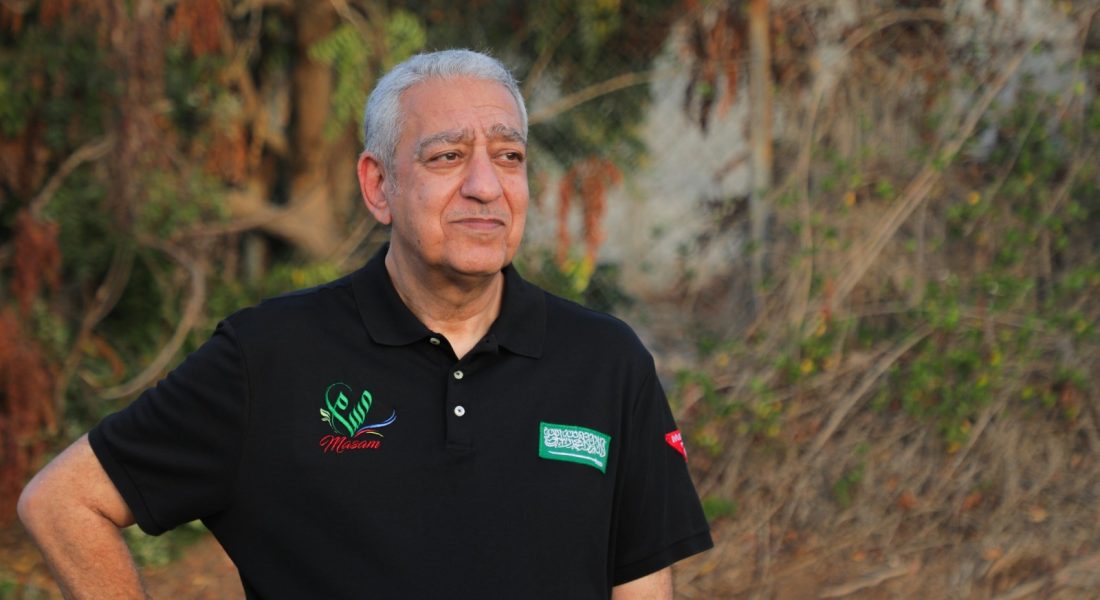Project Masam’s managing director Ousama Algosaibi has welcomed a report by Human Rights Watch, saying hat the existence of mines in Yemen is a serious problem; and that the Houthi militia is still manufacturing and planting mines, in spite of the fact that Yemen has signed an agreement banning the use of individual mines.
The humanitarian landmine clearance project has removed more than 450,000 landmines and explosive devices since launch in June 2018 – a figure Algosaibi has described as “alarming”. 80% of the mines removed by Project Masam demining teams in Yemen were manufactured by the Houthis.
On 24 May, Human Rights Watch published a report ‘Houthi Landmines Claim Lives, Livelihoods‘, in which it called on the Houthis and allies ton “cease use of banned mines” and for demining operations to be accelerated to protect civilians.
During a phone interview on Al-Hadath channel, Algosaibi said the report was “a good start after the absence of international organisations [in Yemen] for years”.
Algosaibi added that 80% of all mines that were removed by Project Masam’s demining teams in Yemen, whether they were anti-vehicle mines, anti-personnel mines, or explosive devices, were manufactured by the Houthis.
“When we talk about more than 8,000 explosive devices and tens of thousands of anti-vehicle mines – most of which were converted into anti-personnel mines using electric pedals – and about their being used in agricultural and infrastructure areas as well as villages, schools, and in front of mosques… it is a serious problem.”
Project Masam’s managing director pointed out that the second problem is the absence of maps and information regarding the mines which the Houthi militia planted in the Yemeni lands. Accordingly, Project Masam’s teams heavily rely on the local people or – unfortunately – the sites of the casualties that occur on a regular basis.
Algosaibi explained that the teams removed more than 450,000 mines and explosive devices during Masam’s six years of work in Yemen.
“This is a very huge and alarming number, a matter which required many years of hard work,” he highlighted.
Project Masam teams as well as organisations operating in Yemen are all working in the liberated areas which are far from the afflicted zones.
“The information we have is that the numbers of mines and explosive devices present in the conflict areas are much greater than what was removed by Project Masam or the Yemen Executive Mine Action Center (YEMAC) and the other concerned bodies,” the managing director warned.
With regards to Human Rights Watch’s calls to step up demining operations in Yemen, Algosaibi pointed out that the largest demining project in the country is Project Masam.
“There are other organisations which work in demining the Yemeni lands, given that they are funded by the United Nations, some European countries or the USA. However, their presence is not comparable to that of Project Masam, which has 550 employees and 32 teams working in Yemen.”
Project Masam does not depend on the United Nations or foreign aid for its finance. Rather, it is a Saudi project par excellence; funded, carried out and supervised by the Saudi government, Algosaibi explained.
Algosaibi stressed that there is a difference between the composition of Project Masam and that of other organisations that depend on aid from several countries or parties in order to be able to work in Yemen, given that their numbers are small and each works according to the capability of the teams it has.
There is a problem facing many organisations, such as the YEMAC, regarding the very scarce funding, dedicated by the UN and Western countries, for the demining of Yemeni lands.
Project Masam’s managing director expressed his happiness with the report published by Human Rights Watch after years of absence of the international organisations from addressing the problem of mines in Yemen, showing a complete ignorance of the problem in recent years.
“This is a good beginning that we hope will persist,” he concluded.

